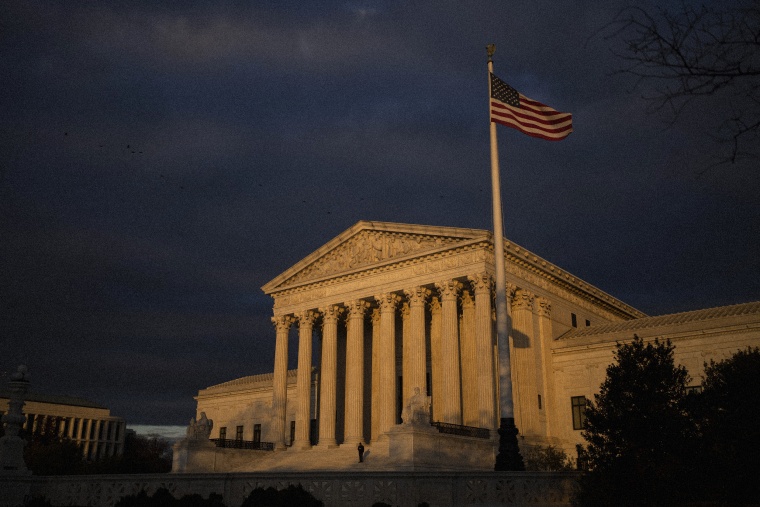We are all adults here, so let’s be honest with one another. President Joe Biden is not in favor of real Supreme Court reform, and he formed a commission to all but ensure that none is forthcoming.
Let’s be honest with each other. President Joe Biden is not in favor of real Supreme Court reform.
At the moment when we most need genuine, structural changes to the Supreme Court, we won’t get them. This is a court now facing serious questions regarding its integrity and, specifically, the way its members are appointed. After February 2016, when Justice Antonin Scalia died, then-Senate Majority Leader Mitch McConnell vowed not to give President Barack Obama’s choice to fill that seat, now-Attorney General Merrick Garland, a hearing. The reason he gave? In more than half a year, Americans would vote for a new president, and the new president should be able to fill the seat.
Fast forward to September 2020, when Justice Ruth Bader Ginsburg died. McConnell vowed to fill the seat immediately. Justice Amy Coney Barrett was sworn in to fill that vacancy not before the 2020 election, but after early voting had already begun. That was nothing but a rank partisan power grab. We can be forgiven for questioning the integrity of a branch whose membership is determined by hypocrites.
There is more. The current court stands on the precipice of fundamentally changing the face of American society, and in many instances, in anti-democratic ways. By the end of this term, the court will almost certainly have overturned half a century of precedent and conclude that states can ban abortions. Within the next few years the court will likely rewrite the law when it comes to religious rights and freedoms, continuing to prize them above other things, including freedom from discrimination. We can also expect more protections for gun owners, and less protection on the basis of race, both with respect to voting and other rights, and perhaps the end of affirmative action programs.
So, in part, thanks to the most conservative court we have had in almost a century, the country is on fire, and an inferno is coming. But help is not on the way.
When President Biden was candidate Biden, it was clear he had little appetite for talking about, let alone committing to, real Supreme Court reform. The swearing in of Barrett in October 2020, as voting in the election was already underway, solidified the now 6-3 conservative majority of the court. Many Democrats and progressives worried, correctly, that this would spell a legal, political and societal sea change for generations to come, and so the Supreme Court became a hot topic on the campaign trail. When candidate Biden was asked about whether the number of seats on the Supreme Court should be expanded, he demurred and said there are a number of important reforms that he would ask a commission to examine.
And he did.
Biden’s decision to create the Presidential Commission on the Supreme Court of the United States, and essentially outsource examination of these topics to an outside group, gave him cover for failing to directly answer questions about the court. But more importantly, it also allowed him to do something while essentially doing nothing, and all but guaranteeing that nothing will get done.
By forming the commission, Biden can truthfully say he asked some of the most accomplished legal minds in the country to take a look at recommendations to reform the Supreme Court. And the report is laudable, but at the same time aggravating for its “on the one hand, on the other hand” approach. Let’s be clear, this is not the fault of the commissioners. They were tasked with examining, not recommending. This frustrating outcome was baked into the structure of the commission from the get-go.
If Biden’s goal in creating the commission was to have an almost 300-page final report that will give him an excuse to say that recommendations for reforming the court are just too difficult to tackle, then he succeeded. The commission’s final report not only fails to take a position on the big proposals to reform the court (expanding the court, imposing term limits, addressing the appointment process), it lacks a sense of urgency required by the current moment. One commissioner put it bluntly, “We hope that the report’s explications of the issues might be useful a century from now.”
Reading this report feels a bit like arranging deck chairs on the Titanic. It makes it look like Biden is doing something, but we are about to hit an iceberg; we need lifeboats, not a better view from the deck.

